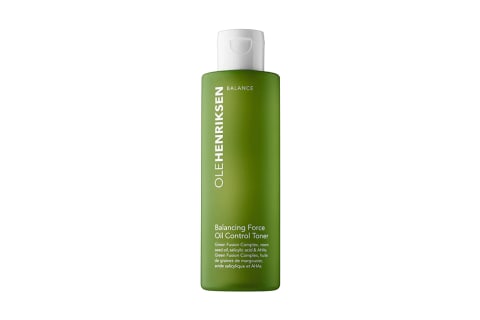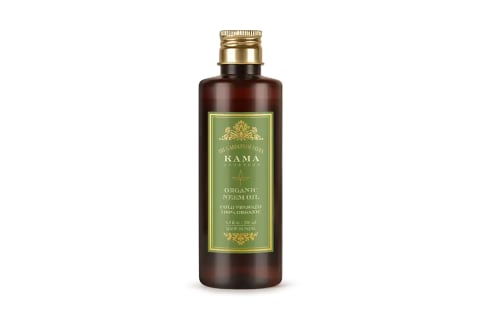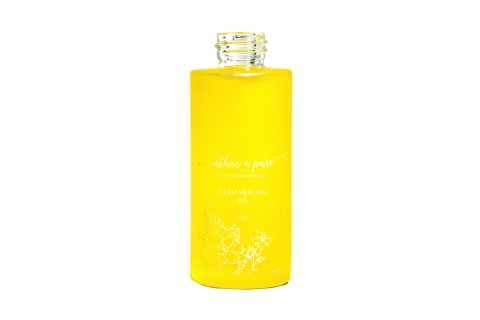You may even be surprised by the dramatic results some natural efforts can provide! Take, for example, neem oil: This ingredient has been around for centuries and continues to command beauty conversations everywhere. Here’s the 101 on this liquid gold, including why you might want to use it and where to find it in products. What’s more, neem oil can be used as a natural pesticide for houseplants. However, today we’re here to discuss its beauty benefits. (But if you’re curious, feel free to take a look at this homeowners’ guide.) And in traditional Indian medicine, the neem tree and its byproducts hold a special place. Siddha medicine2 is one of the oldest medical systems in the world, with origins dating back as far as 10,000 B.C., and the first medicinal plant mentioned in ancient Siddha records is—you guessed it!—neem. During these times, neem was mainly used to protect against smallpox and other infectious diseases2 (it was also used to ward off evil spirits2; clearly, it was pretty versatile). What’s more, neem oil increased type I collagen and elastin in the skin—two essential factors that contribute to skin aging at its core. Plus, it’s protective: “Neem oil is also rich in antioxidants, which means that it can help protect the skin from damage from free radicals,” board-certified dermatologist Hadley King, M.D., tells mbg. This function is crucial, as free radical damage can throw your skin into a state of oxidative stress. Prolonged oxidative stress speeds up the skin aging process4. Specifically, it contributes to the loss of collagen and elastin fibers, resulting in fine wrinkles, sagging, and textural changes. It can also trigger dark spots and other discoloration. More specifically, fatty acids support the skin’s lipid barrier, which reduces water loss, soothes discomfort, and bolsters suppleness. Consider fatty acids a must-have in topical hydrating products. “It also prevents future breakouts by eliminating acne-causing bacteria, purging impurities, tightening the pores, and evening out skin tone,” Koestline adds. Neem oil may even provide benefits for post-acne scarring. “By softening the skin to make it supple, it facilitates the healing of scars and reduces their look and feel,” Koestline says. Research seconds this notion: In one 2013 in vitro study, researchers deemed neem oil an effective long-term treatment for acne5. However, acne is a complex skin condition with many different causes, including hormonal imbalances, genetics, and more. For this reason, it’s a good idea to view neem as a potentially helpful supporting ingredient, but it likely won’t clear stubborn cystic or hormonal breakouts on its own. It’s always best to visit a dermatologist for those deep, inflamed lesions. What’s more, one small 2012 study found that neem oil helped heal surgical wounds on the scalp6, further confirming neem’s ability to aid in overall skin health. It’s important to note that dandruff is technically a form of eczema, which means it cannot be completely cleared with topical remedies (sorry to say: Dandruff has no cure). However, ingredients like neem can help manage the flakes and discomfort that may come along with dandruff. But in terms of hair growth in particular, the jury’s technically still out: “There are no direct scientific studies that link hair growth to neem oil, but since neem oil contains a lot of scalp-beneficial omegas, it helps with overall hair and scalp health,” Koestline says. And as a general rule: Healthy hair grows way faster. As for hair growth, again, neem oil lacks concrete evidence. It can help with overall hair and scalp health, and caring for those follicles is crucial for faster growth, but we’re still lacking some data for hair growth in particular. Rosemary oil will be a better option for that specific goal—you can read all about it here. However, using neem oil is a great launchpad for treating these conditions. If it works for you, then of course you should keep using it. It’s not an end-all-be-all if it doesn’t, though—so give yourself some grace if it’s not the right fit. In terms of acne, there are plenty of other options out there. You can read up on potentially helpful ingredients here, and consult a dermatologist if you’re struggling to find OTC products that work for you. The same goes for eczema, as this condition is highly complex and may be difficult to treat with one ingredient alone. For some of the best OTC products out right now, check out this curated list. “I prefer to dilute neem oil with a carrier oil, like grapeseed, jojoba, coconut oil, or sunflower oil,” holistic esthetician Tammy Fender tells mbg. “But it can be used undiluted as a spot treatment,” she adds. The carrier base may also help ease the strong scent of the neem seed oil, if you have a sensitive nose. It’s better to place neem oil with a simple carrier oil rather than mixing it into a skin or hair serum you already have. This way, you’ll avoid potential chemical reactions or destabilization. Remember to use this oil-serum as a last step in your topical skin care routine. Oils like those listed above have an occlusive function, which means they lock moisture into the skin and act as a barrier. This is great for preventing dryness, but it’s not the best first step, as your other products may not penetrate the skin quite as deeply. As always, it’s best to consult a dermatologist before committing to a new ingredient. Given your unique skin type, goals, and concerns, your dermatologist may give you the green light or suggest you try something else.






